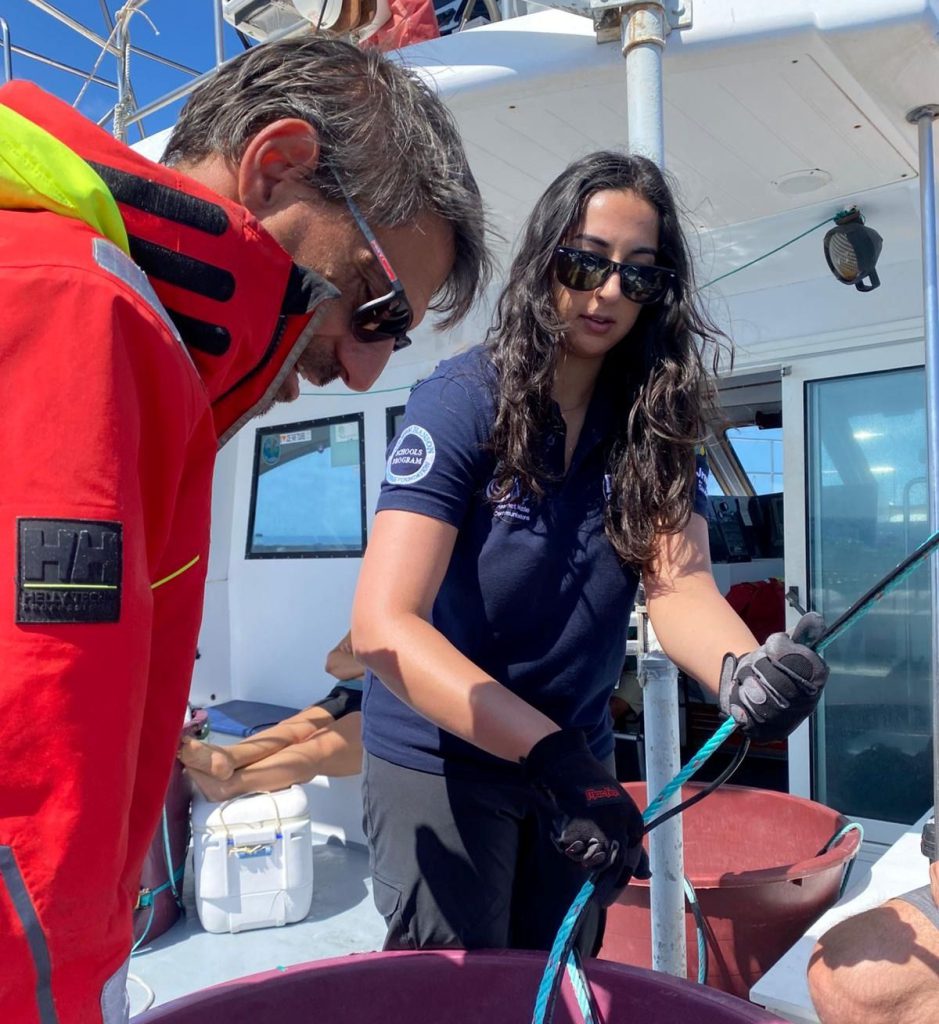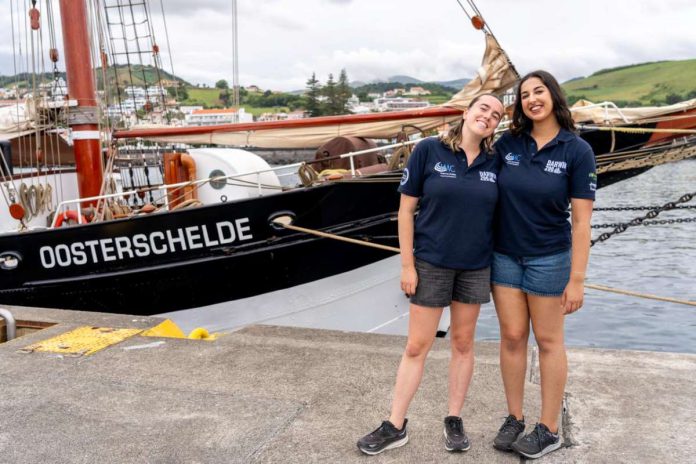In the Atlantic Ocean, a thousand miles west of the Portuguese coast, lies an archipelago lush with valleys, steep cliffs and stunning high-altitude lakes. The Azores will soon be the new home of Priya Talreja, a Fremont native who won a Fulbright-National Geographic scholarship to research electrical vehicle (EV) infrastructure in the eco-friendly region.
A 2019 graduate of Fremont’s Mission San Jose High School, Talreja studied environmental policy analysis and planning at the University of California, Davis, and is the first from her alma mater to win the 2025 National Geographic award offered to Fulbright scholars. Only five recipients were selected this year, with conservation projects ranging from trekkers in Nepal to sea cucumbers in Tanzania.
Talreja’s work will focus on developing EV charging infrastructure and collaborating with local community members to map optimal areas for chargers in the Azores islands of Portugal. Having begun her career working on EV incentives in California, Talreja is well-positioned to bring her experience to the Azores, which she describes as “a living lab for EV policies.”
The topic is crucial to the ongoing development of renewable-energy infrastructure. With electric cars accounting for nearly a quarter of new vehicles in Europe, well-planned chargers can help stabilize the electrical grid, while an uncontrolled approach would exacerbate existing problems. Earlier this year, Portugal, Spain and parts of France endured “one of Europe’s most severe blackouts,” with Spain losing the equivalent of “60% of its national electricity demand” within five seconds.

“Fourty percent of electricity in the Azores comes from renewable sources like geothermal, hydro, wind and solar power,” Talreja said, explaining that the archipelago’s “compact geography” and “favorable political environment” made it ideal for EV adoption. The islands, which consist of several self-contained electrical grids, could serve as an incubation area in the development of renewable infrastructure.
Talreja’s journey to the Fulbright grant took a circuitous route. Originally a computer science major, she became involved with local community organizing during the Covid pandemic and discovered a “sense of purpose and confidence” in local advocacy.
“That was a huge turning point for me personally,” Talreja said, which ultimately caused her to switch majors. The decision “was a lot of pressure at the time,” she recalled, because “it seemed riskier to do something I didn’t know many people were doing.”
Ultimately, Talreja followed advice to choose a major based on classes that were most enjoyable and inspiring to her. “It opened a whole different world of careers,” she said.
With encouragement from a mentor at Fulbright Lotus, an organization that encourages Asian Americans to apply for the prestigious award, Talreja first applied to a leadership program called Darwin200, where young conservationists are offered an opportunity to join a research vessel that retraces the steps of Charles Darwin.
As part of her acceptance to the ship’s stop at the Azores, Talreja documented the work of a deepsea research group pioneering low-cost methods to map the seafloor. That experience became a compelling basis on which to launch her Fulbright application.
The application process took nearly an entire year, Talreja said. Last summer, she began preparing essays, recommendation letters and outreach emails to various research hosts before finally finding out this May that she had won both the Fulbright scholarship and the National Geographic supplemental award, which offers an additional $20,000 in funding.
Having a full-time job helped with navigating the ups-and-downs of the protracted application process. In light of the difficulties of the shifting federal funding and education landscape, Talreja advises fresh graduates and prospective Fulbright applicants to avoid siloing themselves into a single path. “Keep your options open and be willing to pivot,” she said, an approach she has embraced in embarking on her career in exploration and conservation.





Good job 👌